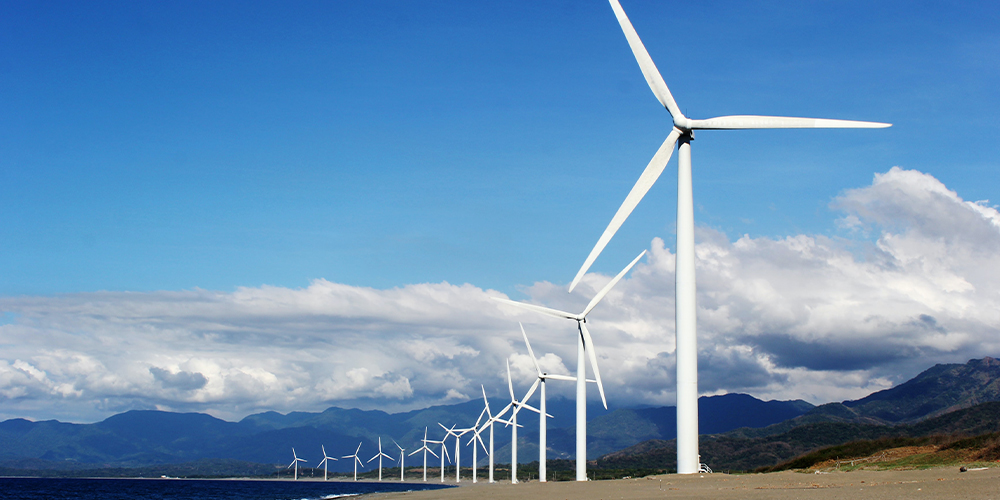
The Growing Demand for Renewable Energy Professionals
What people are talking about Space-based solar power: renewable energy at an affordable price? Australia stands poised to harness the potential of clean and plentiful space-based solar power, as a UK government-commissioned report highlights the technical and economic viability of leading baseload designs, offering 24/7 low-cost, carbon-free energy, job opportunities, and alignment with national…
What people are talking about
Space-based solar power: renewable energy at an affordable price?
Australia stands poised to harness the potential of clean and plentiful space-based solar power, as a UK government-commissioned report highlights the technical and economic viability of leading baseload designs, offering 24/7 low-cost, carbon-free energy, job opportunities, and alignment with national security and climate change objectives.
New IEA Report Predicts 33% Increase in Global Renewable Capacity Additions
Global renewable power capacity is set to surge by a record-breaking 33% this year, with the addition of 107 gigawatts (GW), as per the International Energy Agency’s Renewable Energy Market update, fuelled by robust government policies and mounting energy security apprehensions, propelling worldwide capacity to surpass 440 GW.
Japan Aims for Wind Power to Account for One-Third of Electricity by 2050.
Japan’s wind power sector, as announced by the Japan Wind Power Association (JWPA), aims to surge its capacity from under 5 GW to 140 GW by 2050, positioning itself to satisfy a third of the nation’s electricity needs and support its 2050 carbon neutrality objective, with offshore wind energy poised to play a pivotal role, despite existing delays and the government’s relatively conservative target of 45 GW offshore wind power by 2040, in contrast to the more ambitious JWPA goals.
India Contemplates Reducing Import Tax on Solar Panels to Address Domestic Shortfall.
India contemplates a 50% reduction in import taxes on solar panels and seeks the rollback of goods and services taxes, as the Ministry of Renewable Energy engages in discussions with the Ministry of Finance, aiming to meet the surging demand for renewable energy and offset the shortfall in local production, according to three government sources familiar with the matter.
Keppel Corp Expands Green Hydrogen and Ammonia Output with New Agreements
Singapore’s Keppel Corp bolsters its position in the green energy sector through strategic agreements, including a partnership with the Central Queensland hydrogen (CQ-H2) project consortium, facilitating the development of hydrogen production facilities and related infrastructure in Australia, with a keen focus on exporting green hydrogen and ammonia to Asian markets.
What we are currently working on
- VP Technical/ Engineering (Electrolysis P2X) – Germany
- Strategic Advisor (Solar Wind) – Vietnam
- Regional HSE Manager (Grid Utilities Transformers) – Singapore
- VP Project Finance (Renewable Energy) – Shanghai
- Development Director (Hydrogen/ Ammonia) – Singapore/ Germany
- Project Development Manager (BESS) Melbourne
- Project Manager – Technical (London)
- HR Administrator – Taipei
- HRBP – Melbourne
- Head of Legal, APAC – Australia
The Growing Demand for Renewable Energy Professionals
We find ourselves at a crucial turning point in our world’s history, grappling with the consequences of the global pandemic, disruptions in supply chains, geopolitical tensions, evolving work models, and economic instability. The renewable energy sector has not been immune to the effects of these dynamics. However, despite the challenges, there has been a remarkable surge in investment in clean energy, leading to a significant increase in job opportunities worldwide.
A recent report by the European Investment Bank highlighted a concerning issue hindering the growth of green technology in the European Union (EU): a shortage of skilled workers. Out of over 12,000 businesses surveyed, a staggering 80 percent stated that this lack of skills was impeding the progress of green energy projects.
Currently, approximately 650,000 individuals are employed in the wind and solar industries within the EU. Trade associations predict that this number will double within the next eight years. A similar trend is observed in the United States, where the Inflation Reduction Act (IRA) is anticipated to generate nearly one million new jobs in the clean energy sector annually over the next decade.
Even prior to the passage of the IRA last autumn, employment in renewables was on an upward trajectory. However, this trend has become more complex due to the recent phenomenon dubbed “The Great Resignation.” According to federal data, in 2022, 50.5 million workers in the US voluntarily left their jobs, compared to 47.1 million in the previous year. Notably, US employers hired an unprecedented 76.4 million people in 2022, while the number of layoffs hit a record low. Currently, the unemployment rate remains steady at approximately 3.4 percent. In Germany, there are 1.7 job openings for every unemployed energy technician, and it takes an average of six months to fill these positions.
The 2022 LinkedIn Global Green Skills Report reveals a staggering 237 percent increase in renewable and environmental job postings in the United States over the past five years. By 2023, it is expected that job opportunities in this sector will surpass those in the oil and gas industry on the LinkedIn platform.
McKinsey estimates that the global capacity of solar and onshore/offshore wind projects will quadruple from 2021 to 2030, necessitating an additional 2.8 million skilled workers in the green sector. However, the current workforce lacks the required specialized expertise to meet the demands of the future, making it impossible to staff these upcoming projects.
The talent gaps within the renewable industry can vary across different sectors but generally encompass the following areas:
- Engineering and technical skills: There is a growing demand for engineers specializing in renewable energy systems, including electrical, mechanical, and civil engineers. These professionals play a vital role in designing, developing, and maintaining renewable energy infrastructure.
- Research and development: Advancing renewable energy technologies and addressing challenges require research scientists and experts who can innovate, improve existing solutions, and develop new ones.
- Project management: Effective project management skills are essential for overseeing the planning, execution, and completion of renewable energy projects. Professionals experienced in managing complex initiatives and coordinating various stakeholders are highly sought after.
- Policy and regulation: The renewable energy industry heavily relies on favorable policies and regulations. Professionals who possess a deep understanding of the legal and regulatory frameworks related to renewable energy are needed. Additionally, experts who can navigate policy landscapes and advocate for supportive measures are invaluable.
- Operations and maintenance: Once renewable energy projects are implemented, skilled technicians and maintenance personnel are required to ensure their efficient operation and upkeep.
- Data analysis and digital skills: The increasing use of data-driven technologies, smart grids, and monitoring systems in renewable energy necessitates professionals with expertise in data analysis, cybersecurity, and digital technologies.
It is projected that by 2050, companies worldwide could generate more than 300 million additional jobs in the green sector. This emerging economy will demand skills that may not exist or be widely recognized today.
In short, there is cause for optimism! As leaders in the renewable industry reconsider their critical human resources strategies and explore new avenues for attracting, training, and developing talent, there lies an incredible opportunity to build sustainable organizations that can meet the talent demands of the market and contribute to a better world.
Market Moves
- Steve Jackson, formerly the VP APAC of First Solar, has been appointed as the Managing Director of Bluestar Energy Australia Pty Ltd.
- Jose Antonio Millan Ruano who was President & CEO of Hinode Energy has joined Nozomi Energy as CEO in Tokyo, Japan.
- Kapil Maheshwari, who was previously the President of Reliance Group, where he was leading the Renewable Energy and Green Hydrogen arm, has joined Welspun New Energy Limited as their Executive Director & CEO.
- Kian Min Low has joined Gentari, a clean energy solutions company, wholly owned by PETRONAS, as their Chief Renewables Officer. He was previously with JERA as their Chief Development Officer based in Singapore.
- Sushil Purohit has joined Petronas’s clean energy solutions company – Gentari as their Managing Director and Chief Executive Officer. He was previously with Wartsila Energy as their President and EVP.
- Brian O’Rorke, formerly Senior Business Development Manager of Nextracker Inc., joins SC Oscars Fund Management as Vice President and Head of Solar Investments.
- Mark Leslie, Asia Managing Director of Energy Technology & Solutions at Macquarie Group, takes on additional responsibility as co-heading their energy storage business, Eku Energy.
- Hyunwook Shin has joined Copenhagen Infrastructure Partners as their new Market Development Director, formerly a Director of Wind Farm Development & Execution of Renova, in Seoul.
- Torbjorn Elliot Kirkeby-Garstad joins Norsk Solar as the CEO based in Norway, formerly General Manager of SEA of Scatec ASA.
- Michael Rush, who was previously the Head of Sales and Marketing of Canadian Solar, has been promoted to Country Manager of the organisation, in Melbourne.

Giles Dalton
Managing Director | Partner, Singapore
+65 9644 2225
EA 18S9493 | R1216422

